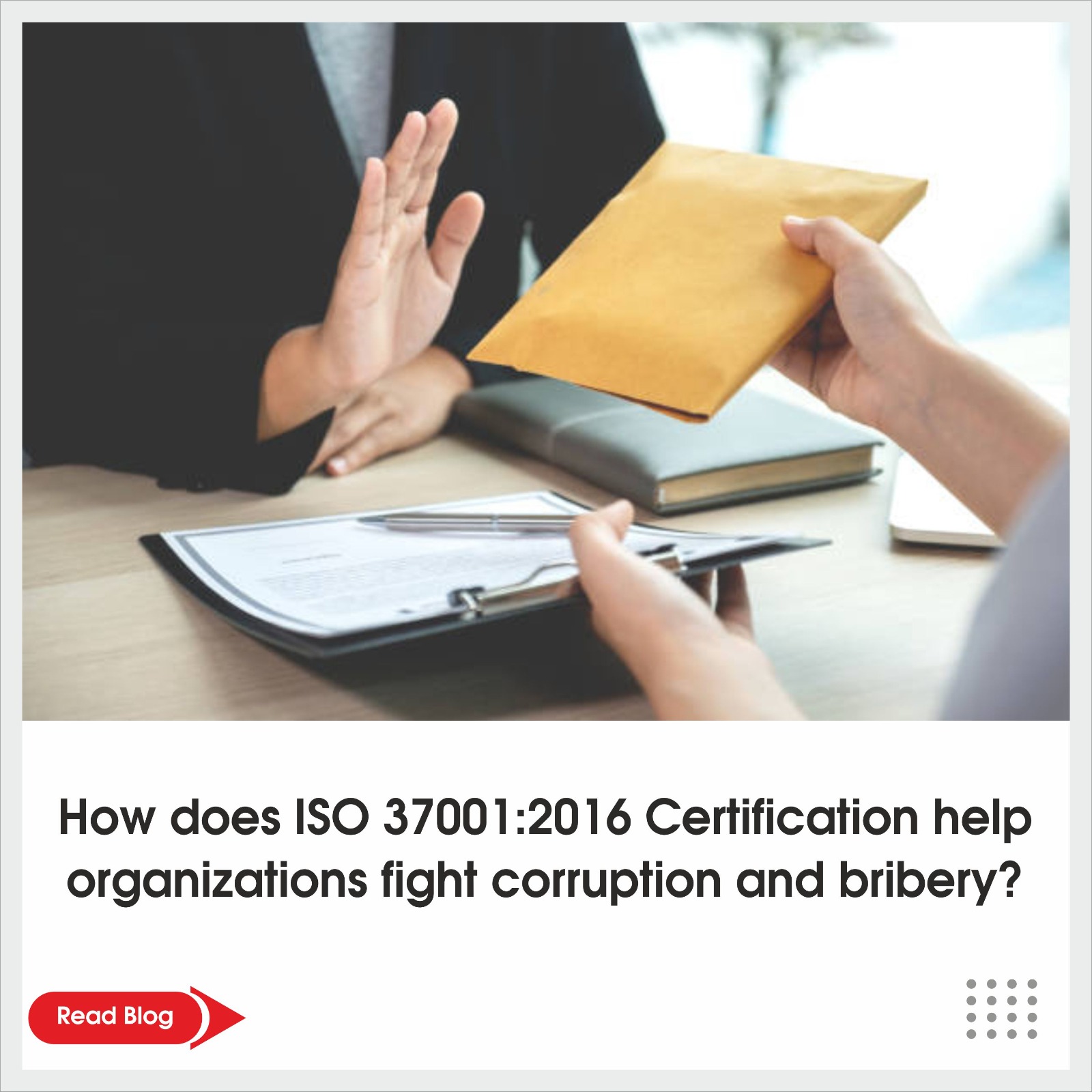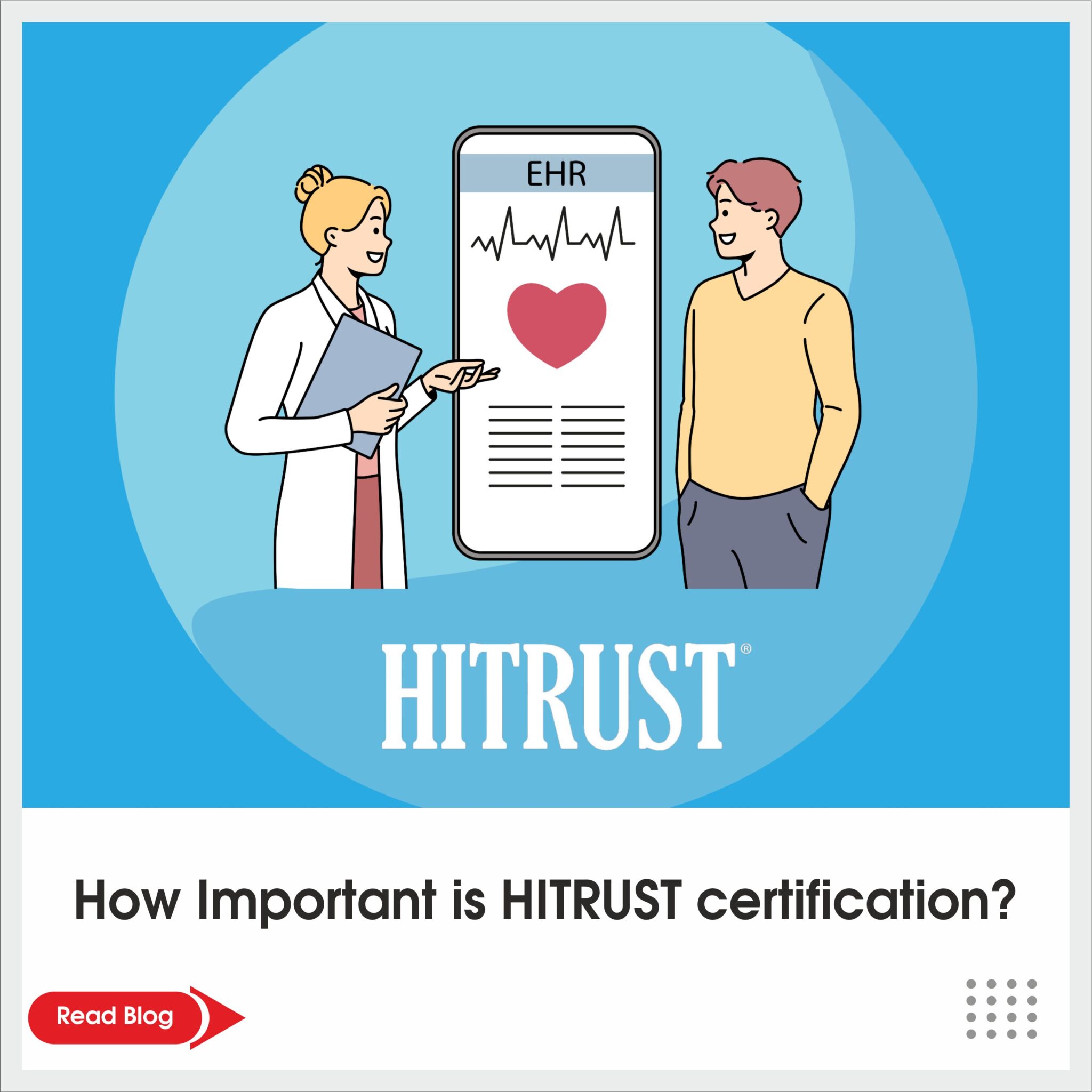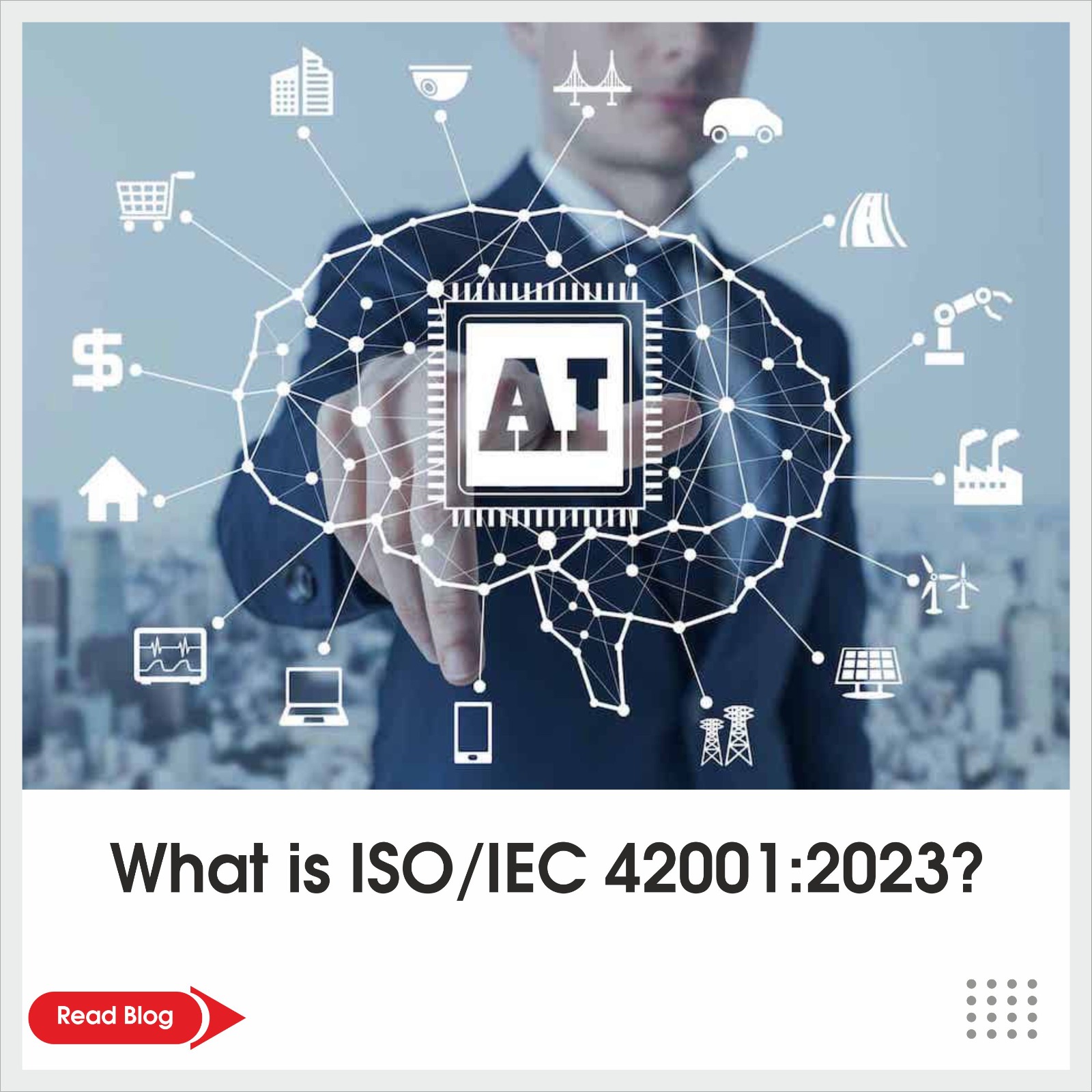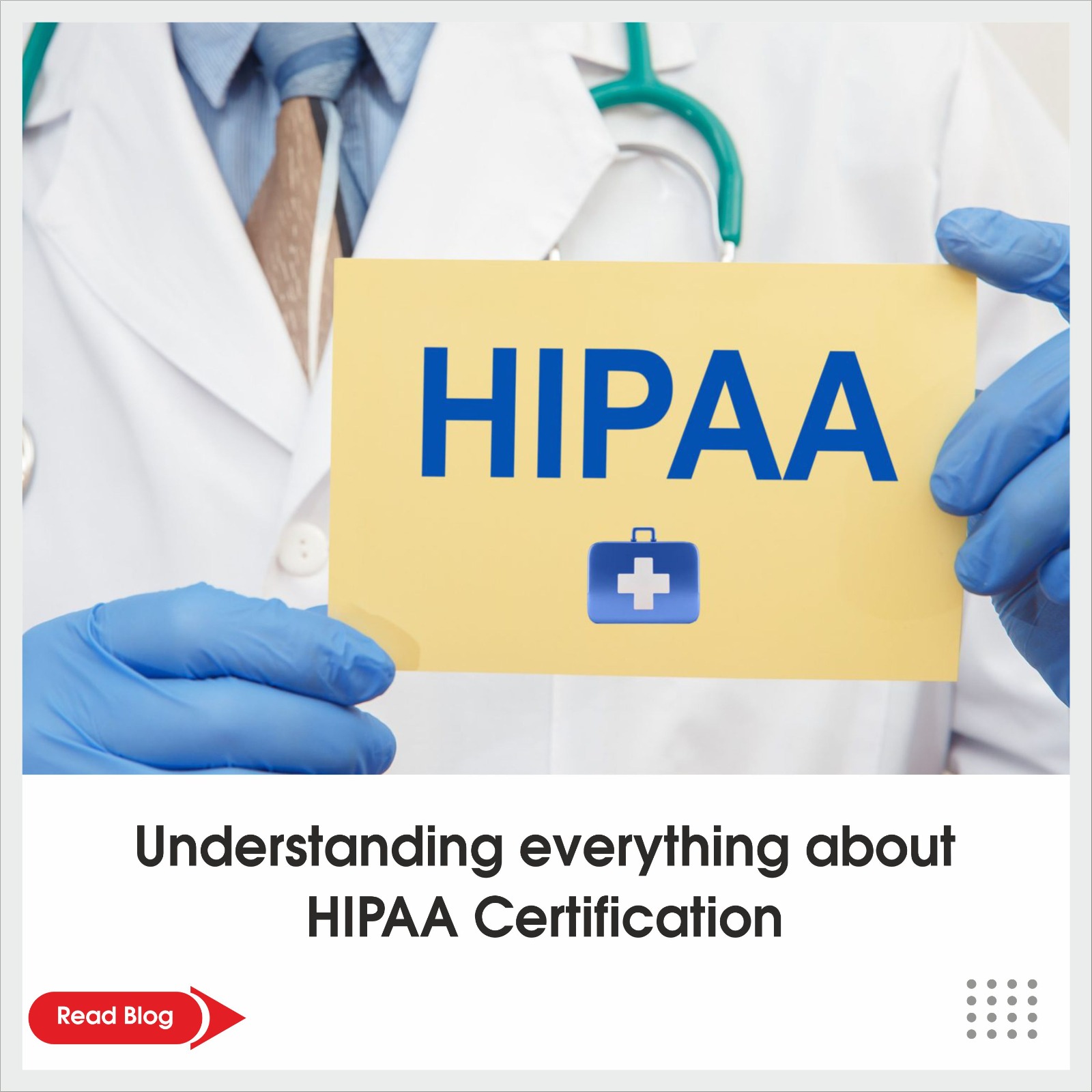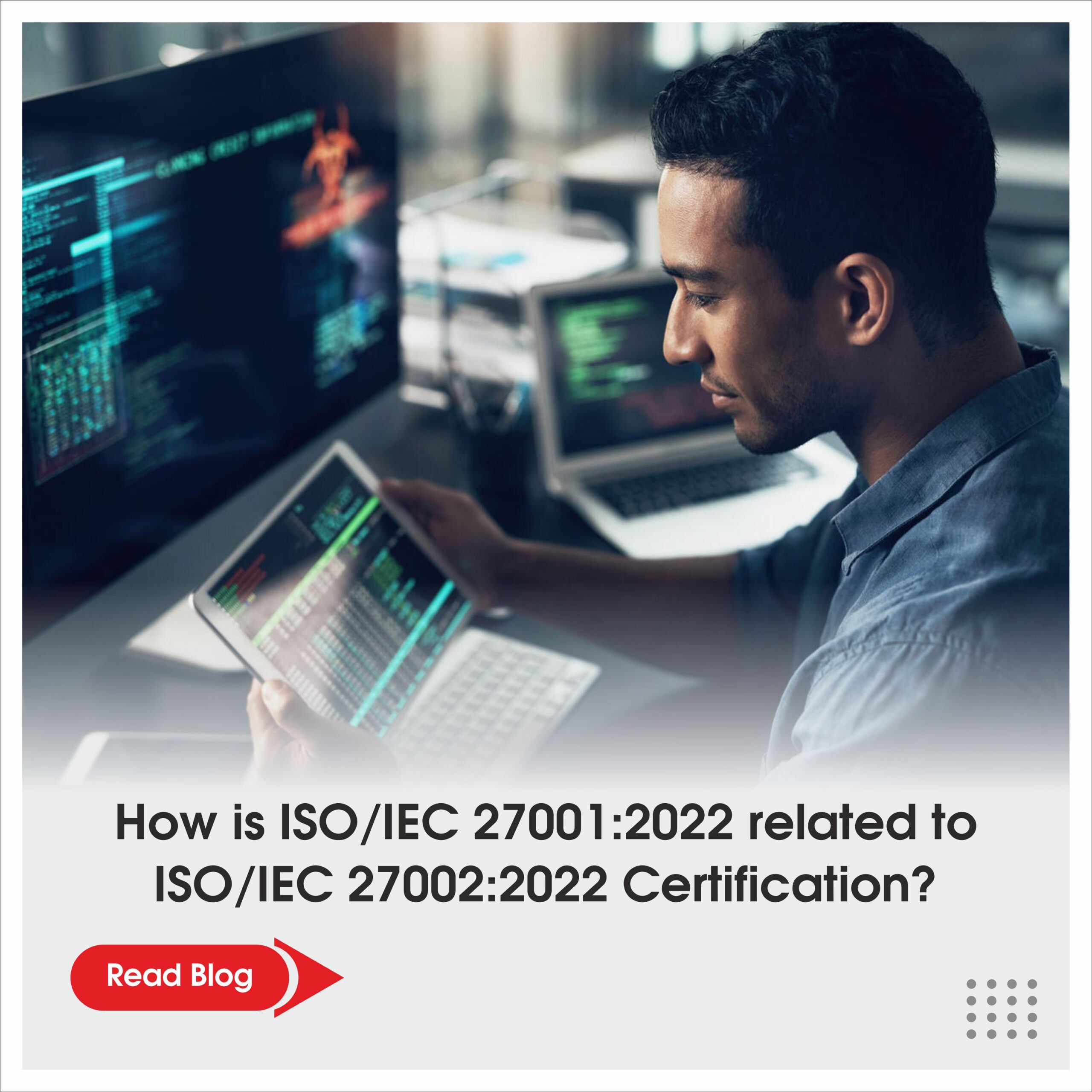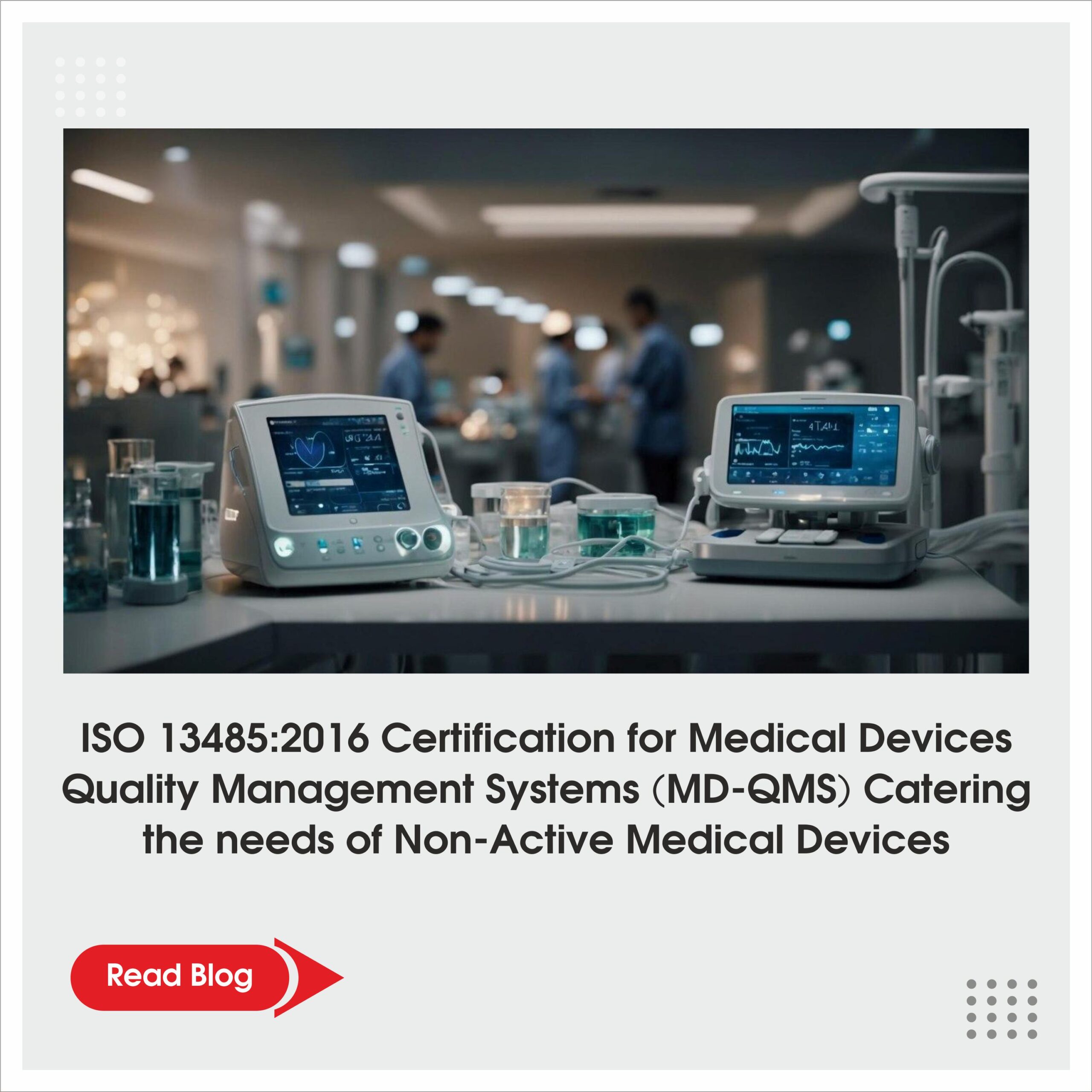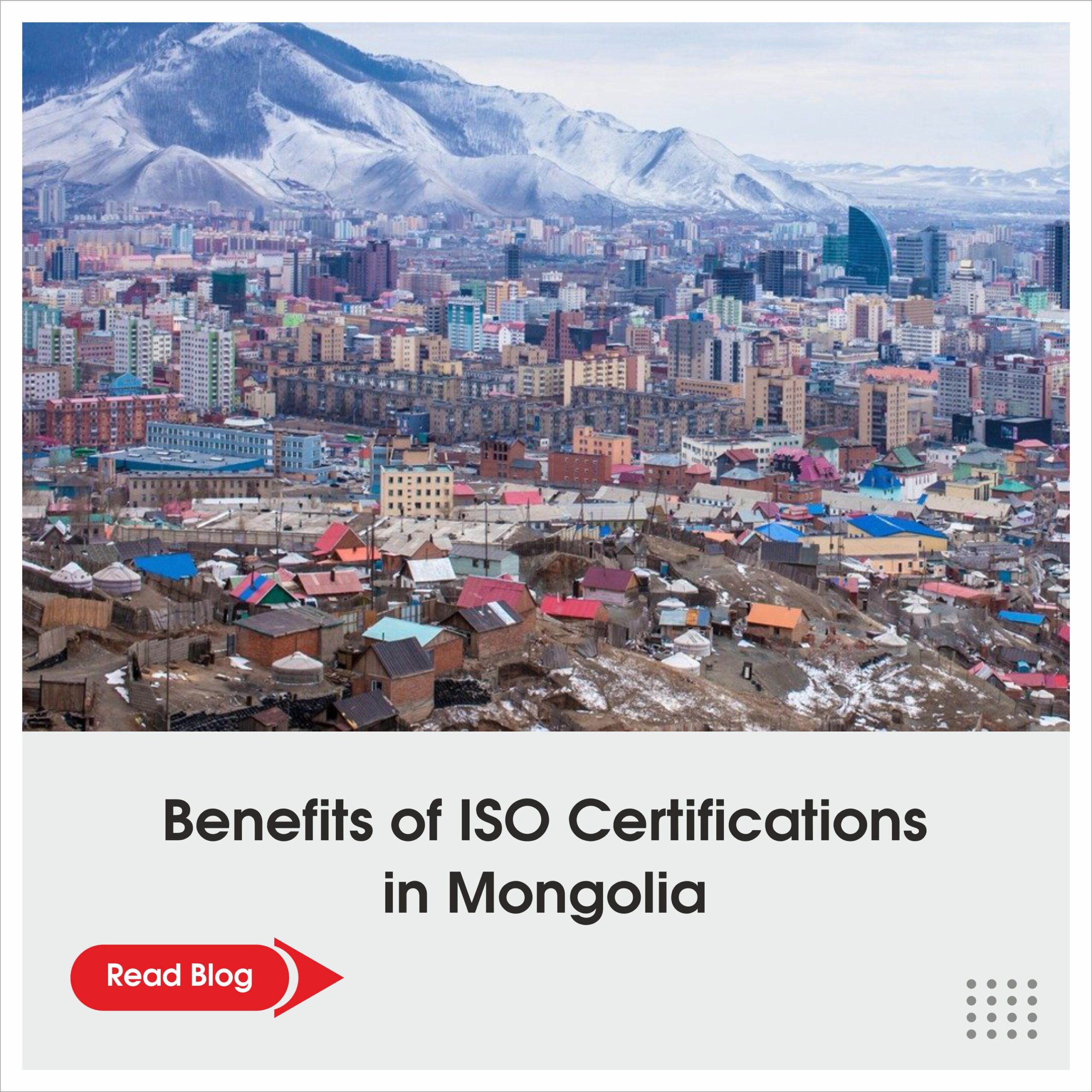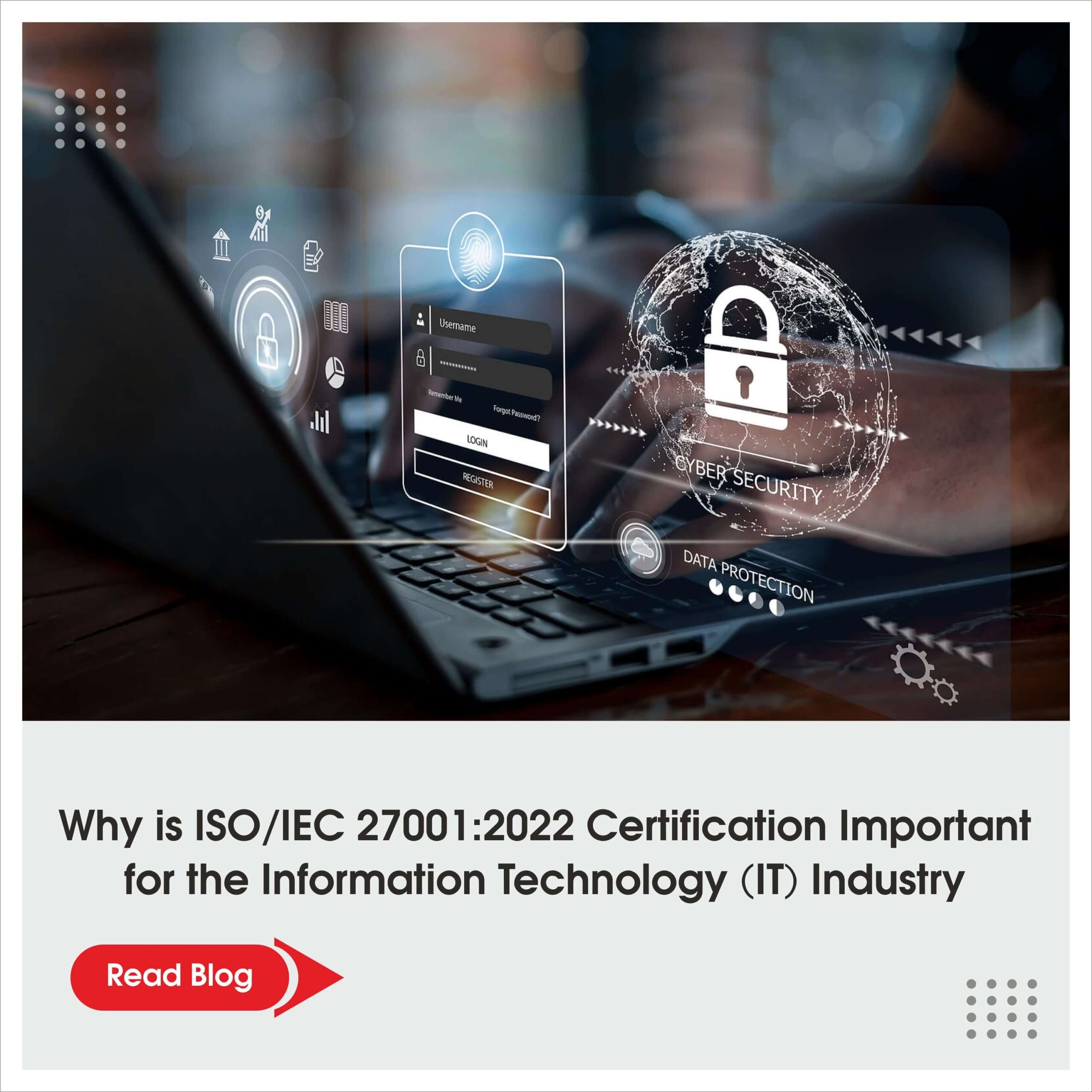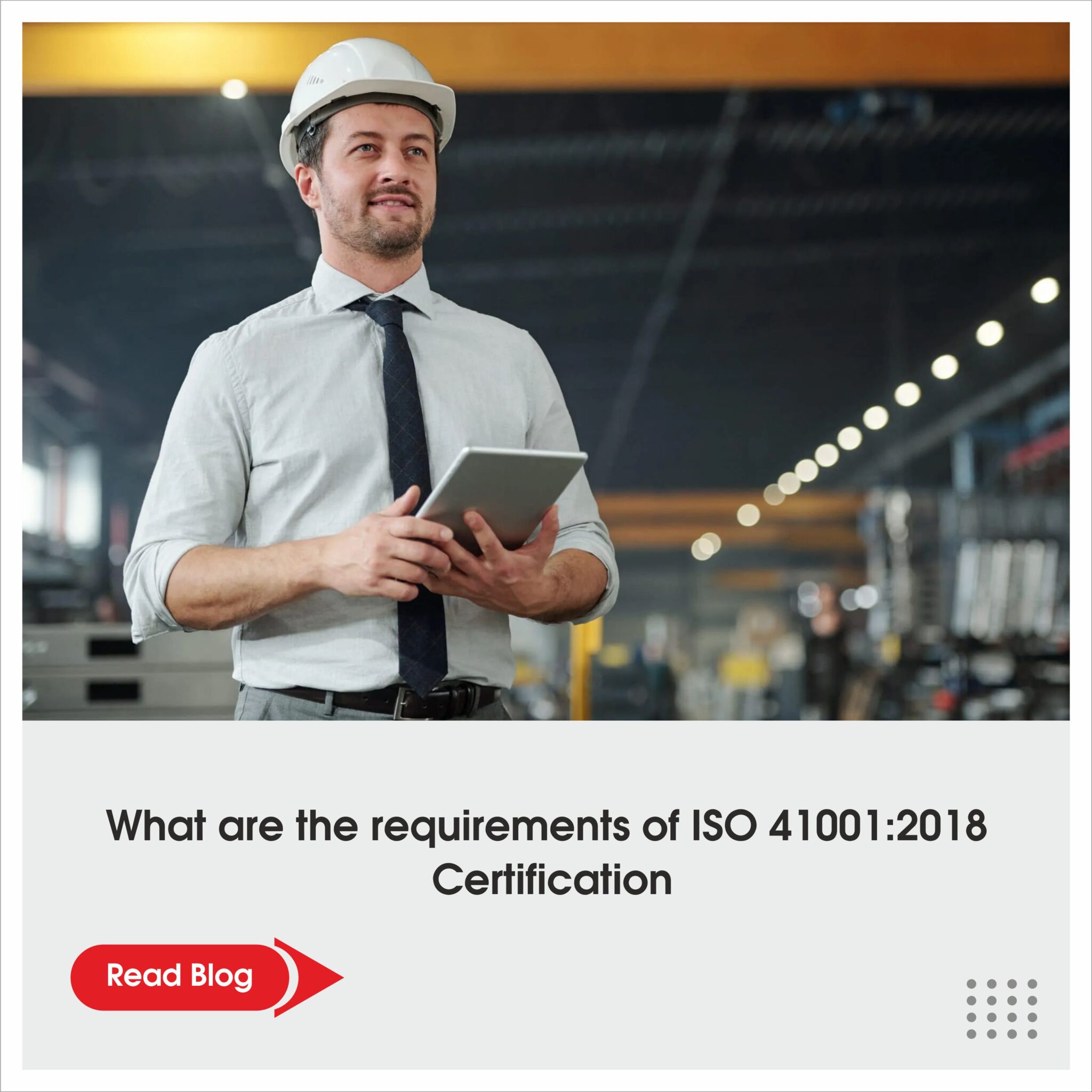Bribery is a global problem that can lead to significant moral, political, social, and economic issues. Moreover, the most alarming thing about bribery is that people do not even consider bribery as a heinous crime. It is seen as a victimless crime that, in one way or another, society has accepted and justified with statements like “it is unavoidable” or “you cannot do anything about it.” However, bribery is a form of misconduct within a workplace that can lead to corruption and hinder fundamental human rights. The International Organization for Standardization (ISO) has published ISO 37001:2016 Certification for Anti-Bribery Management Systems (ABMS) to fight the evil of bribery and eliminate corruption. What is ISO 37001:2016 Certification? ISO 37001:2016 is a certification for Anti-Bribery Management Systems (ABMS). Moreover, it is an international standard that provides a framework for organizations to prevent, detect, and address bribery. ISO 37001 specifies various measures and controls to help organizations implement anti-bribery guidelines to identify and mitigate bribery risks and comply with relevant laws and regulations. Organizations can demonstrate their commitment to ethical business practices to enhance their reputation and reduce the risk of bribery-related incidents. Anti-Bribery Management Systems (ABMS) Framework for Organizations ISO 37001:2016 standard mandates organizations to implement a series of measures to implement appropriate controls to manage specific circumstances. Moreover, it helps organizations prevent, detect, and address bribery incidents by establishing a moral and ethical code of conduct. ISO 37001 follows a Plan-Do-Check-Act (PDCA) approach for continuous improvement within the organization to adopt an Anti-Bribery system. Organizations seeking to implement ISO 37001:2016 Certification should follow the national and international guidelines and regulations related to anti-bribery. Furthermore, the certification also provides an organization with a foundational list of anti-bribery checks and controls for sensitive activities and positions. Many organizations worldwide implement the following checks and controls as a solid operational strategy. Moreover, it helps them keep uniformity, consistency, and transparency in their efforts to achieve their goals. ISO 37001:2016 Certification improves financial and non-financial oversight by deploying automated monitoring tools to prevent unauthorized payments.It can significantly boost an organization’s economic health, reputation, and growth prospects. Moreover, it demonstrates the organization’s dedication to ethical business practices for its stakeholders. Ways in which ISO 37001 for Anti-Bribery Management Systems Certification helps organizations fight Corruption and Bribery ISO 37001 emphasizes on doing thorough due diligence on business partners and putting safeguards in place to avoid bribery in the supply chain. Moreover, this makes it possible for businesses to choose and manage dependable and trustworthy business partners, lowering the chance of being linked to bribery actions by third parties. ISO 37001 also enables your business to perform better daily by ensuring that your organization has a culture that prioritizes transparency and reduces the risk of bribery. It assists an organization in setting goals and objectives that encourage diligence and the capacity to monitor and evaluate to lower bribery risks. ISO 37001 Certifications help to demonstrate to the prosecutors or courts that the organization has made reasonable efforts to prevent bribery in the case of a bribery inquiry involving the organization. Because of this, it could help in avoiding or minimizing prosecution. ISO 37001 Anti-Bribery Management System Increases certainty and transparency around anti-bribery procedures. It adheres to ethical business principles and keeps all stakeholders updated on the organization’s stance against bribery. Numerous governmental organizations, businesses, and international organizations favour doing business with suppliers and partners with effective anti-bribery procedures. ISO 37001 implementation might provide an organization with a competitive edge by creating new business prospects and alliances. Conclusion ✅ ISO 37001:2016 Certification is a significant marketing tool for organizations to fight against corruption and bribery. Moreover, this certification establishes a robust framework to prevent, detect, and address bribery incidents by ensuring compliance with relevant laws and regulations. Organizations can cultivate a culture of transparency and integrity by implementing ISO 37001. It also demonstrates to stakeholders, including courts and prosecutors, that the organization is committed to ethical practices to mitigate legal repercussions. Furthermore, ISO 37001 provides a competitive edge by attracting business entities to prioritize ethical and moral standards for sustainable growth and trustworthiness.
Future-Proof Your Data Privacy with ISO 27701 Certification
In today’s digital landscape, organisations cannot overstate the importance of safeguarding personal information. Organisations worldwide are tasked with navigating a complex maze of data privacy regulations and cybersecurity threats. However, ISO 27701:2019 is a vital tool for every organisation striving for comprehensive data protection. It is an extension of ISO/IEC 27001 Certification for Information Security Management Systems (ISMS). ISO 27701 provides a robust framework for managing personal data processing by ensuring compliance with regulations like GDPR. It also helps organisations mitigate the ever-evolving information security threat landscape. The imperative for stringent data privacy measures has never been more pressing, with escalating cyberattacks at an alarming rate and the costs of data breaches reaching unprecedented heights. What is ISO/IEC 27701 Certification? ISO 27701, published in 2019, establishes a framework for efficient data protection within organisations by aiming for global recognition and optimal information security. It extends ISO 27001, guiding the creation and enhancement of Privacy Information Management Systems (PIMS). This standard is crucial for managing Personally Identifiable Information (PII), whether organisations control or process it. Achieving ISO 27701 certification assures adherence to PIMS requirements and is essential for any entity handling PII within its Information Security Management System (ISMS). Across the globe, stringent data security laws, like the GDPR in the EU, reinforce privacy standards for customer data protection. Implemented in 2018, the GDPR sets strict data collection, usage, and transfer regulations. Moreover, it focuses on fortifying privacy rights in today’s digital realm. Purpose of ISO/IEC 27701 Certification ISO 27701, an extension of ISO/IEC 27001, is a globally recognised certification aiming to optimise data and information protection. Even with ISO 27001 certification, ISO 27701 adds an intricate layer of data privacy by enhancing information security significantly. Its purpose is to minimise privacy risks by integrating best practices into organisational policies and processes and ensuring secure processing of personal data. Companies align with data privacy standards like GDPR by establishing and maintaining effective Privacy Information Management Systems (PIMS). Benefits of ISO/IEC 27701 for Privacy Information Management Systems (PIMS) The following are the benefits of ISO/IEC 27701 certification for Privacy Information Management Systems (PIMS). These are :- • Enhanced Data Privacy Management – ISO/IEC 27701 provides a systematic approach to managing privacy risks associated with personal data processing. It helps organisations identify, assess and mitigate privacy risks by implementing appropriate controls and measures. Moreover, this structured framework ensures that data privacy considerations are integrated into all aspects of the organisation’s operations, from data collection and processing to storage and disposal. • Compliance with Regulations – Achieving ISO/IEC 27701 certification demonstrates an organisation’s commitment to complying with various data privacy regulations and standards. ISO 27701 also guides organisations to align with GDPR requirements and other laws to avoid costly penalties and legal consequences. • Improved Reputation and Trust – ISO/IEC 27701 certification enhances an organisation’s reputation by demonstrating its commitment to stakeholders, including customers, partners, and regulators, that it takes data privacy seriously. Organisations build the trust and confidence of clients and stakeholders by demonstrating compliance with internationally recognised standards. • Competitive Advantage – Data privacy has become a significant differentiator for organisations. Achieving ISO/IEC 27701 certification sets organisations apart from competitors by showcasing their commitment to protecting the privacy of individuals’ data. • Cost Savings – ISO/IEC 27701 certification leads to cost savings by reducing the likelihood and impact of data breaches and non-compliance incidents. Organisations can minimise the risk of data breaches by implementing robust privacy controls and measures to reduce financial losses, regulatory fines, legal fees, and reputational damage. Conclusion ✅ Organisations today face the critical challenge of safeguarding personal data amidst a complex landscape of data privacy regulations and cybersecurity threats. ISO 27701:2019, an extension of ISO/IEC 27001 Certification, is a vital tool for comprehensive data protection. ISO 27701 helps organisations navigate the evolving threat landscape by providing a robust framework for managing personal data processing and ensuring compliance with regulations like GDPR. It aims to minimise privacy risks and enhance information security significantly by integrating best practices into organisational policies and processes.
How Important is HITRUST Certification?
The healthcare industry collects and stores a vast amount of patients’ data. As a result, it is more prone to cyberattacks and becomes the primary target of security breaches and data theft. As per the HIMSS Survey, around 81% of US hospitals and healthcare systems and 83% of payers are adopting the HITRUST information security framework to win clients’ and vendors’ trust. Moreover, the certification is necessary for third-party vendors in the healthcare sector. HITRUST Certification is a significant tool for companies in the healthcare sector to demonstrate their commitment to information security and become successful. The certification provides an organisation with a proactive approach to expanding its consumer base and helps it retain existing customers. However, the HITRUST Alliance introduced the Common Security Framework (CSF) to empower healthcare systems and enable them to adopt appropriate cybersecurity defence mechanisms to safeguard users’, clients’, and stakeholders’ data. What is HITRUST Certification? HITRUST stands for the Health Information Trust Alliance (HITRUST) and is a Common Security Framework (CSF) designed by the HITRUST Alliance. Moreover, the certification provides a formal and extensive certification process for organisations for an information security program. The certification is the highest degree of confidence and demonstrates an organisation’s ability to meet compliance to safeguard users’ and stakeholders’ data. The Health Information Trust Alliance, or HITRUST Alliance, is an independent not-for-profit body established in 2007 to manage information security risks and safeguard sensitive data. The organisation published the HITRUST Common Security Framework (CSF), which includes various other standards. These are: HIPAA ISO/IEC 27000-series NIST 800-53 PCI-DSS HITRUST Common Security Framework (CSF) is a unique standard combining all other significant data security standards for information security and data protection, including SOC 2 and NIST. The certification mandates an organisation to conduct a thorough assessment and independent assurance program to follow a unified path to attain information security against cyberattacks. Moreover, HITRUST Certification is a gold standard for companies in the healthcare sector to ensure data protection and expand business. The Three Shades of the HITRUST Certification HITRUST Certification follows a comprehensive information security framework that comes in three types :- HITRUST bC: HITRUST bC is a verified assessment. However, it is not a third-party assessment but a self-assessment performed by the organisation. It is validated by the HITRUST e1. The HITRUST i1: The HITRUST i1 is an assessment conducted by a HITRUST assessor firm or HITRUST-approved assessor of 219 HITRUST CSF controls. Moreover, it is valid for one year and can be supported by a readiness assessment. The HITRUST r2: The HITRUST r2 is a HITRUST-validated assessment of the HITRUST CSF control baseline applicable to an organisation. It is valid for two years and can be attained after completing an interim inspection after the first year. HITRUST Security Controls Companies in the healthcare sector can apply for HITRUST Certification to maintain compliance with significant information security regulations of all sizes. However, organisations need expert security guidance to convert general obligations into solid policies. The HITRUST Certification offers hundreds of security controls across 19 different areas. These are:- Information security and protection program Endpoint protection (laptops, servers, and devices) Portable media controls (thumb drives and the like) Mobile device security (laptops, cell phones, etc.) Wireless access (WiFi security) Configuration and change management Vulnerability detection and management Network security protection Data transmission protection Password strength and management Access control to servers and software Audit logging and monitoring Employee education, training, and awareness Third-party contracts and management Incident response and management Business continuity and disaster recovery Risk assessment and management Data centre physical security Data protection and privacy Conclusion ✅ HITRUST certification is a crucial benchmark in the healthcare industry’s fight against cyber threats and data breaches. The healthcare sector is particularly vulnerable to malicious attacks due to the sensitive nature of an effective marketing tool for organisations to win new clients, customers, and stakeholders. HITRUST is a Common Security Framework (CSF) for healthcare organisations to gain a comprehensive approach by fortifying their defences against cyber threats. HITRUST certification encompasses various security controls, from endpoint protection to incident response and management, leaving no stone unturned in safeguarding sensitive data.
What is ISO/IEC 42001:2023?
ISO/IEC 42001 is a global standard that describes the requirements for establishing, implementing, maintaining, and continuously improving an Artificial Intelligence Management System (AIMS) in businesses. It is designed for enterprises that sell or utilize AI-powered products or services, ensuring that AI systems are developed and applied responsibly. Importance of ISO/IEC 42001:2023 Addressing ethical issues is critical in the age of artificial intelligence, as judgments made by computers affect people’s lives. AI systems must be effective and compliant with moral standards, and ISO/IEC 42001 serves as a beacon in this regard. As a means of reducing possible social effects, it encourages enterprises to explore the ethical subtleties of AI responsibly. Integrity is essential to the ethical use of artificial intelligence. By promoting transparent and understandable AI systems, ISO/IEC 42001 acknowledges this. To provide openness throughout the development and deployment lifecycle, the standard requires businesses to describe data sources, types utilized for AI training, and the resilience of AI systems. The Purpose of ISO/IEC 42001:2023 ISO/IEC 42001 standard promotes an organization’s accountability on an ethical and moral level. At its core, it stipulates the appearance of a concerned organization responsible for upholding ethical practices in all its business operations and decision-making. The practicalized standard is built to serve as a comprehensive guide for forming, implementing and sustaining the AI management system of an organization with a focus on continual improvement. The major objective of the framework is to guide in the responsible development, application or use of Artificial Intelligence (AI) systems by organizations, and hence help them in the attainment of their goals, meeting the proper governing rules, observing the obligations they have towards the relevant stakeholders, and aligning the activities with the right expectations. In short, ISO/IEC 42001 is the process where the creation of AI that is responsible, its providing and the usage of AI is targeted and focused on. Here’s a breakdown of what this new standard addresses AI Governance: This standard ISO/IEC 42001 is based on which the organizations can make policies and work procedures for AI governance. Such as the completion of these bounds comprises the clearly stated roles and procedures for decision-making and the strategies for the good management of risks. Impact Assessment: Organizations should undertake an analysis of the societal, environmental, as well and individual impact of their AI systems. This allows the prevention and the prediction of misuse of these AI technologies and the guidance on their ethical development. Data and Model Lifecycle Management: Effective data and model methodology are a vital part of the standards delineation. It covers a range of operations such as data collection including labelling and validation then it goes through a model development, training, evaluation and deployment process that is followed by continuous monitoring. Diversity and Inclusiveness: The norm stresses the need to account for inclusiveness and the diversity of the AI systems. It requires organizations to examine AI technologies given how they may affect both human groups sharing similar backgrounds, qualities, and features. Monitoring and Auditing: Similarly ISO/IEC 42001 stresses the fact of regular inspection and checking of AI systems. This is important for the graceful degradation of these systems, whenever a false trigger or an adjustment is needed, and the software engineers, technicians, and researchers respond in the right way to it. Benefits of implementing ISO/IEC 42001:2023 The implementation of ISO/IEC 42001:2023 standard within organizations has multiple benefits: Enhances trust and credibility: An ISO/IEC 42001 certification implies that an organization has taken a responsible approach to AI practices, thereby increasing trust levels among clients and society in general. Competitive advantage: Those who follow the standard are ahead of their competitors in the AI-oriented field. Addresses pressing concerns: The standard ISO/IEC 42001 will be an efficient tool for the treatment of AI-related issues like fairness, transparency, and security. Flexible and adaptable: It is not too stringent and could be customized to the particular needs of an organization, thus making it more adaptable than sector-specific regulations. Increases consumer confidence: Consumers whose expectations are met through the implementation of ISO/IEC 42001 get a feeling of trust towards AI products and services. Access to global markets: The standardization maintains uniformity, through which organizations can readily operate in global markets. Third-party seal of approval: If a certification is sought, it acts as a third-party guarantee of trustworthiness, signifying accountability. Contractual obligations: Some organizations may have contractual commitments to keep such certification. Internationally recognized risk mitigation: Certification underscore the dedication to internationally recognized techniques of risk prevention. Signal of priority: ISO/IEC 42001 sends a message to customers and stakeholders that a management system for AI, which is responsible, is the top priority. Internal governance: Setting the standards can strengthen the internal governance. Board Awareness: Standards highlight effective AI system governance to the board and hence promote decision-makers awareness and support at the apex level. Alignment with best practices: Even without direct certification, the reviewing of procedures as per ISO/IEC standards helps organizations continue to follow best practices and future trends in AI governance. Key Features of ISO/IEC 42001 The flexible ISO/IEC 42001 becomes a pillar of AI governance. The certifiable standard delivers essential characteristics that expand artificial intelligence’s applicability across many settings, sectors, and future developments, as more and more businesses adopt it. Verifiable Standard: Organizations are given a concrete certification process by ISO/IEC 42001. As a trust signal to partners, lawmakers, and consumers, independent auditors can evaluate and certify businesses. This certification attests to ethical and responsible AI management and indicates conformity to the standard’s concepts. Innovation Support: ISO/IEC 42001 stands out in an era of constantly shifting regulations and rapid technological development because it actively promotes innovation rather than stifles it. Concerning future advancements in AI, the standard is made to be forward-looking. Organizations may build ethical AI without imposing prohibitive obstacles by using common principles. Risk Management: The importance placed on a systematic approach to risk management by ISO/IEC 42001 is one of its main advantages. To guarantee that AI systems are both creative and dependable, the standard addresses hazards related to AI, such as data abuse and operational errors. The larger goal of responsible AI deployment is in line with this
Understanding everything about HIPAA Certification
Data privacy and information security are significant in all industries, including the healthcare and IT sectors. The acronym HIPAA refers to the Health Insurance Portability and Accountability Act. It also assists organisations in protecting individuals’ private and sensitive data to maintain the integrity and confidentiality of health information. The certification oversees and tracks adherence to domestic and global best practices to preserve the integrity of the healthcare system. What is HIPAA Certification? Obtaining a HIPAA Certification confirms that a company complies with the 1996 Health Insurance Portability and Accountability Act (HIPAA). HIPAA’s main objective is to protect people’s protected health information (PHI). PHI is any information about a person’s medical history, current condition, course of treatment, or amount paid for medical care. HIPAA is a comprehensive evaluation of an organisation’s technology infrastructure, policies, and practices to monitor and maintain compliance with the regulation. Why is HIPAA Certification important for Organisations? Legal Compliance – Organisations with HIPAA Certification monitor and maintain legal compliance with the certification requirements to protect PHI. However, non-compliance and non-conformities can attract heavy fines and penalties that can damage its brand value. Enhances clients’ and customers’ trust and reputation – Patients trust healthcare organisations with their most private and sensitive information. Patients feel more at ease knowing that their data is handled with the highest care and security thanks to HIPAA Certification. Achieving a HIPAA Certification enhances an organisation’s credibility and reliability to ensure privacy and information security. Data Security – Strong security measures, such as encryption, access controls, and frequent audits, are required for HIPAA certification. Additionally, the certification supports the organisation’s general data security culture to guard against possible breaches and growing cybersecurity threats. A List of Organisations that can apply for HIPAA Certification HIPAA Certification is relevant for multiple organisations within the healthcare ecosystem. The following are the main categories of organisations that can benefit from HIPAA Certification :- 1. Hospitals and Clinics2. Insurance Companies3. Healthcare Clearinghouses.4. Business associates handling Protected Health Information (PHI)5. Information Technology (IT) Service Providers6. Legal firms What are the benefits of HIPAA Certification? HIPAA certification applies to various industries and offers a goldmine of benefits. The following are the benefits of HIPAA certification :- Organisations can lower the legal risks connected to non-compliance through HIPAA Certification. Moreover, it helps organisations monitor and manage the legal complexities to avoid expensive penalties and fines. HIPAA Certification is a hallmark of trust and credibility that demonstrates an organisation’s commitment to patient privacy protection. Moreover, it increases patient trust and confidence in the organisation by ensuring patient satisfaction and loyalty. Organisations shall implement robust security measures to guarantee data privacy and information security to improve overall data security posture. Furthermore, it promotes a mindset of continuous data security practice to protect individuals’ information against potential breaches. Organisations investing in HIPAA Certification gain a competitive edge in the cutthroat healthcare market. It is a differentiator that helps them stand out from rivals and draws clients and partners who value privacy and data security. Conclusion ✅ Data is the foundation of healthcare in the digital age, and HIPAA Certification is an essential tool to protect data from threats. The certification process is also a calculated financial investment apart from a legal necessity. HIPPA certification upholds legal compliance with privacy and information security regulations to improve patient trust and organisational resilience.
How is ISO/IEC 27001:2022 related to ISO/IEC 27002:2022 Certification?
Corporate organisations must protect the users’ and clients’ sensitive information. However, companies have found it difficult to prevent unauthorised access to sensitive, vital, or restricted information. As a result, it can lead to permanent harm to their operations. Organisations can protect information assets using the ISO 27000 series of standards. Furthermore, it helps organisations better manage the security of assets like financial data, intellectual property, and employee information. The most well-known standard in this family is ISO/IEC 27001 for Information Security Management System (ISMS), also connected to ISO 27002 Certification. What is ISO/IEC 27001:2022 Certification? Organisations often face challenges in effectively managing cyber risks in the face of escalating cybercrime and the emergence of new threats. However, ISO/IEC 27001:2022 certification offers a robust framework to address these challenges for organisations across various sectors. Organisations can systematically enhance their ability to identify, assess, and mitigate cyber vulnerabilities by adhering to ISO/IEC 27001 standards. The certification promotes a comprehensive approach to information security, encompassing the scrutiny of personnel, policies, and technological infrastructures. Implementing an information security management system with ISO/IEC 27001 not only serves as a pivotal tool for risk management but also fosters cyber resilience and operational excellence within the organisation. What is ISO/IEC 27002 Certification? ISO/IEC 27002 is a complementary standard focusing on the information security controls that organisations must deploy. These controls are part of Annex A of ISO/IEC 27001, a reference frequently cited by information security professionals when discussing such measures. However, while Annex A security controls provide concise descriptions of each control in a sentence or two, ISO/IEC 27002 offers a more comprehensive exploration by allocating approximately one page per control. This depth allows the standard to explain the functionality of each control, articulate its objectives, and provide guidance on its implementation. Is ISO/IEC 27001 the same as ISO/IEC 27002? ISO 27001 is the primary standard for certifying a business, whereas ISO 27002 is a supplementary standard offering guidance on implementing security controls. An essential distinction is while ISO 27001 certification is attainable for a company, ISO 27002 certification is voluntary. How is ISO/IEC 27001 different from ISO/IEC 27002 Certification? ISO/IEC 27001:2022 certification is achievable, whereas ISO/IEC 27002 certification is not. ISO/IEC 27002 is intended for use by organisations as a reference for control selection that provides guidelines for information security management practices, including security controls implementation and management. ISO/IEC 27001 also documents requirements for setting up, implementing, maintaining, and continuously improving an information security management system. Standards that contain regulations can be certified by organisations, but standards that offer guidance cannot be certified. Other differences are as follows: ISO 27001 offers a concise overview of an Information Security Management System (ISMS), leaving detailed guidance to supplementary standards like ISO 27002. Other standards, such as ISO 27003 and ISO 27004, provide specific advice on ISMS implementation and monitoring. An organisation can attain ISO 27001 certification but not ISO 27002 certification. Moreover, this is because ISO 27001 outlines comprehensive compliance requirements as a management standard, while supplementary standards like ISO 27002 focus on specific facets of an Information Security Management System (ISMS). Implementing an Information Security Management System (ISMS) is crucial to recognise that not all information security controls are relevant. ISO 27001 underscores this by requiring organisations to conduct a risk assessment to identify and prioritise security threats. However, ISO 27002 lacks directives and is challenging to determine suitable controls. Latest Revision in ISO/IEC 27001 and ISO/IEC 27002 Certification ISO/IEC 27001:2013, last updated in 2022, the full title of the new version is ISO/IEC 27001:2022 for Information Security, Cybersecurity and Privacy Protection. Changes of ISO/IEC 27001:2022 Certification Annex A provides references to the controls included in ISO/IEC 27002:2022, encompassing both the control and its title. Editorial revisions to the note in Clause 6.1.3 c) include the removal of the “control objectives” and the substitution of “control” for “information security control.” Clause 6.1.3 (d) has been reworded to remove ambiguity and increase clarity. Scope and Context: It requires an organisation to identify the pertinent requirements of stakeholders and determine which ones need to be incorporated into the ISMS. Moreover, this involves explicitly outlining the necessary processes and their interrelationships within the ISMS framework. Planning: The latest updates to information security standards emphasise monitoring information security objectives by mandating an organisation to maintain proper documents. Moreover, a new subclause addresses planning changes to the ISMS without prescribing specific processes. Therefore, organisations must ascertain methods to demonstrate the planning of changes within their ISMS. Annex A: The Annex A has undergone revisions to ensure alignment with ISO 27002:2022. The subsequent section delves into a detailed discussion of the controls outlined in Annex A. Changes in ISO 27002 Certification ISO 27001:2022 now lists 93 controls compared to the 114 in ISO 27001:2013, primarily due to the consolidation of 56 controls into 24, while no controls have been eliminated. These controls are organised into four overarching themes rather than 14 clauses, namely: People (8 controls) Organisational (37 controls) Technological (34 controls) Physical (14 controls) Additionally, several new controls have been introduced, including Threat Intelligence, Information security for the use of Cloud services, ICT readiness for business continuity, Physical security monitoring, Configuration management, Information deletion, Data masking, Data leakage prevention, Monitoring activities, Web filtering, and Secure coding. ISO 27002 controls are further categorised into five attribute types; these are: Control type (preventive, detective, corrective) Information security properties (confidentiality, integrity, availability) Cybersecurity concepts (identity, protect, detect, respond, recover) Operational capabilities (governance, asset management, etc.) Security domains (governance and ecosystem, protection, defence, resilience). Conclusion ✅ The transition to the updated ISO/IEC 27001 standard should be smooth, with minor adjustments required for compliance. The main standard changes are minimal to facilitate quick updates to documentation and processes. Annex A controls see moderate changes but can be integrated into existing documentation. Expectations for sweeping revisions were high but not realised.
ISO 13485:2016 MD-QMS – Catering the needs of Non-Active Medical Devices
ISO 13485 Certification outlines the framework for organisations to provide high-quality medical equipment to satisfy consumers, clients, and stakeholders. Organisations engaged in one or more phases of the life cycle of a medical device, such as design, development, production, storage, distribution, installation, and technical support, should take note of this accreditation. The MD-QMS requires external parties and suppliers to provide top-notch goods and services to guarantee the safety and well-being of clients and customers. What is Non-Active Medical Devices? Non-Active Medical Devices form part of the Main Technical Areas under ISO 13485:2016 Certification. Moreover, Main Technical Areas are divided into five categories; these are :- General Non-Active, Non-Implantable Medical Devices Non-active medical devices do not rely on an external energy source for operation. These devices are crucial in healthcare settings and necessitate thorough testing to ensure user safety and intended functionality. It includes: Non-active devices for emergency, anaesthesia and intensive care Non-active devices for injection, transfusion, infusion and dialysis Non-active medical devices with measuring function Non-active ophthalmologic devices Non-active medical devices for disinfecting, cleaning and rinsing Non-Active Implants Inactive implants encompass various types, such as non-active cardiovascular, orthopaedic, functional, and soft tissue implants. Moreover, these implants are not used for permanent placement within the human body. It includes: Non-active cardiovascular implants Non-active orthopaedic implants Non-active functional implants Non-active soft tissue implants Devices for Wound Care Wound care medical devices assist in dressing wounds. They encompass materials such as cotton wool, bandages, gauze dressings, sutures for closing dermal wounds lasting less than 30 days, and surgical gloves. These devices do not contain antimicrobial agents and do not utilize animal tissues. It includes: Wound dressings and bandages Clamps and suture material Other medical devices for wound care Non-Active Dental Devices and Accessories Non-active dental devices and accessories encompass various dental instruments and equipment, ranging from X-ray cones to face bows. Additionally, this category includes dental materials and implants. Non-active dental instruments and equipment Dental materials Dental implants Non-Active Medical Devices other than Specified Above Conclusion ✅ The ISO 13485:2016 certification outlines further prerequisites tailored for the healthcare and medical device sectors to address heightened risks and safety concerns for patients. However, this certification applies to organizations, offering detailed guidelines for establishing, monitoring, and managing quality management systems to regulate processes and services effectively.
Benefits of ISO Certifications in Mongolia
ISO certification bodies in Mongolia provide a range of ISO certification services, encompassing ISO 9001, ISO 14001, and ISO 27001. Among the respected ISO certification bodies in Mongolia is SIS Certifications Pvt Ltd, which extends diverse services to companies aimed at grasping the significance of international standards. These certification bodies offer extensive assistance in implementing and acquiring ISO certifications, ensuring adherence to global standards. Organisations in Mongolia can apply for the following ISO Certifications The International Organisation for Standardisation (ISO) has developed more than 22,521 international standards covering various sectors of the economy, such as technology, food safety, services, healthcare, and agriculture. The global influence of ISO International Standards is evident from the growing demand and importance for businesses. The various types of ISO Certifications are as below :- ISO 9001:2015 Certification for Quality Management Systems (QMS) in Mongolia :It is one of the most widely used methods for developing, implementing, and maintaining a “Quality Management Programme” that can be used by any business and is adaptable enough to meet the needs of various sized and types of organisations. ISO 14001:2015 Certification for Environmental Management Systems (EMS) in Mongolia : ISO 14001 offers guidance for establishing an environmental management system (EMS) comprising documents, policies, strategies, processes, and procedures that outline how a business interacts with the environment. ISO 45001:2018 Certification for Occupational Health and Safety Management Systems (OHSMS) in Mongolia :ISO 45001 is a management system for occupational health and Safety Management System (OHSMS). It provides companies with a framework for risk management and improves the effectiveness of OH&S. Essential elements include the commitment of the leadership, employee involvement, risk assessment and hazard identification, legal and regulatory compliance, emergency preparedness, incident investigation, and continuous improvement. ISO/IEC 27001:2022 Certification for Information Security Management Systems (ISMS) in Mongolia: The latest edition of the information security standard, ISO 27001, was published in 2022. It delineates precise requirements for designing a suitable management system for information security under managerial oversight. Organisations in Mongolia that fulfil these requirements may undergo an audit process and become certified by an accredited certification body. ISO 41001:2018 Certification for Facility Management Systems (FMS) in Mongolia:ISO 41001 accreditation for Facility Management Systems (FMS) shows an organisation’s dedication to providing the necessary assistance to deliver quality services. Additionally, it supports the implementation of suitable controls and technologies by an organisation to guarantee efficient facilities management. ISO 22301:2019 Certification for Business Continuity Management System (BCMS) in Mongolia:The ISO 22301 standard offers a strong and durable framework for organisations to maintain essential operations even during crises or unexpected events. Certification under this standard equips organisations in Mongolia to prepare for unforeseen incidents by developing suitable recovery and disaster management plans. ISO/IEC 27701:2019 Certification for Privacy Information Management Systems (PIMS) in Mongolia:The Privacy Information Management System (PIMS) requires organisations to deploy suitable security measures to protect users’ personal and confidential data. Additionally, it entails implementing the security controls outlined in the ISO 27002 certification. ISO 22000:2018 Certification for Food Safety Management Systems (FSMS) in Mongolia:ISO 22000 outlines the requirements of a food safety management system (FSMS) applicable to any organisation involved in the food chain, directly or indirectly. It demonstrates compliance with pertinent legal and regulatory standards concerning food safety. Benefits of ISO Certifications in Mongolia An organisation in Mongolia can benefit from ISO certification in multiple ways by solving different problems. These are the following :- It provides an organisation in Mongolia with international recognition, enhancing its credibility and dependability in the global market. The International Organisation for Standardisation (ISO) provides best practices to maintain compliance with environmental, information security, and quality standards. Organisations can show their dedication to quality and compliance by meeting the demands of stakeholders, clients, and customers with ISO certification. ISO standards help organisations in Mongolia to save costs by improving customer satisfaction and business processes to ensure sustainable growth. ISO standards assist businesses in identifying and reducing any risks and threats by implementing the necessary actions to guarantee long-term sustainability. Conclusion ✅ ISO Certification enhances the credibility and reliability of different industries in Mongolia. Furthermore, selecting a reputable and dependable certification body enhances an organisation’s accreditation credibility. The industrial and service sectors constitute a significant portion of Mongolia’s GDP. Additionally, ISO certifications are vital for addressing healthcare and education challenges and can foster economic growth by ensuring long-term sustainability.
Why is ISO/IEC 27001:2022 Certification Important for the Information Technology (IT) Industry?
ISO 27001 is a universally acknowledged information security framework that evaluates the effectiveness of an organisation’s Information Security Management System (ISMS) in safeguarding its data. Achieving an ISO 27001 certification showcases that an organisation adopts a robust information security stance to protect the sensitive information of clients, customers, partners, and other stakeholders. What is ISO/IEC 27001 Certification? The ISO/IEC 27001 standard emerged from a collaboration between the International Organisation for Standardisation (ISO) and the International Electrotechnical Commission (IEC) to assist businesses in crafting secure systems and validating their security stance through certification. ISO/IEC 27001 centres on an organisation’s Information Security Management System (ISMS), including policies and procedures to eliminate security threats and risks and safeguard data. Organisations must undergo an audit ensuring compliance with requirements and mitigation of potential system risks to attain ISO 27001 certification. Which Organisations Can Apply for ISO/IEC 27001:2022 Certification? Organisations across various sectors and industries are eligible to pursue ISO/IEC 27001 certification. Moreover, the certification provides the organisations with an adequate Information Security Management System (ISMS) following the standard’s requirements. A list of organisations that can apply for ISO/IEC 27001 Certification :- Finance Sector Healthcare Industry Information Technology (IT) Industry Manufacturing Sector Education Sector Government Sector Importance of ISO/IEC 27001:2022 Certification for Information Technology (IT) Industry ISO/IEC 27001:2022 Certification is the world’s first and most widely used standard for International Standard for Information Security Management. Tech companies face many information security-related difficulties when they develop and enter foreign markets. Moreover, this is particularly valid when handling sensitive data, such as financial transactions or personal information. A business can streamline and verify various processes to safeguard clients’ and customers’ data by obtaining ISO/IEC 27001 certification. Some of the benefits of ISO/IEC 27001 Standard for Information Technology (IT) Companies are as follows :- ISO/IEC 27001 requires an organisation to conduct a risk assessment to formulate appropriate incident response and risk management strategies. Information Technology (IT) Companies can showcase their commitment to information security to customers and partners through certification under this standard. ISO/IEC 27001 for Information Security Management Systems (ISMS) signifies that the IT company prioritises safeguarding sensitive data and has established effective processes and systems to achieve information security goals. Tech companies can tap into new revenue sources and explore new business opportunities nationally and internationally by becoming an ISO/IEC 27001-certified organisation. Numerous countries enforce laws and regulations mandating companies to safeguard personal information and other sensitive data. Information Technology (IT) companies can exhibit compliance with these regulations with ISO/IEC 27001 Certification. ISO/IEC 27001 certification helps IT companies identify and mitigate potential risks by adopting a risk-based approach. Additionally, it helps companies avoid penalties and fines while affirming their commitment to data protection. Obtaining ISO/IEC 27001 certification is the first step towards a tech company’s international expansion. In today’s highly competitive environment globally, businesses contest to attract new customers and clients. However, possessing an ISO/IEC 27001 certification to demonstrate a company’s dedication to information security can provide it with a significant competitive edge. Conclusion ✅ Many well-known businesses, including those on the Fortune 500, need their suppliers to be ISO/IEC 27001 certified. However, this need is mandatory in industries like finance and healthcare, where maintaining data security is vitally important. Moreover, the information technology (IT) industry can become more aware and information security conscious with ISO/IEC 27001:2022 Certification.
What are the requirements of ISO 41001:2018 Certification?
The ISO 41001 standard amalgamates individuals, locations, and procedures within constructed spaces to improve occupants’ experiences and boost business productivity. However, the International Organisation for Standardisation (ISO) released the ISO 41001 for Facility Management System (FMS) in 2018. The certification is suitable for organisations, including public or private, irrespective of their size, scope, or geographical remoteness. Furthermore, the ISO 41001 standard is crafted to address the growing intricacies of facility management. Why should an organisation apply for ISO 41001:2018 Certification? ⮯ ISO 41001 is the first international facility management system (FMS) standard in the world. Facility management is an organisational function that combines people, place, and process to enhance the built environment’s quality of life and the productivity of the company’s main business. ISO 41001 certification constructs a comprehensive environment for buildings, external works, and infrastructure in a given area. It improves quality of life by raising safety standards and improving working conditions for those who operate in the built environment, for example, walkways, walls, buildings, electrical and mechanical systems, and more. However, implementing ISO 41001 enhances the productivity of core company operations. Furthermore, it focuses on improving societal services, including healthcare, education, retail centres, hotels, condos, and hospitality, among other areas. Which organisations can apply for ISO 41001 Certification? ⮯ ISO 41001 helps organisations adopt an adequate facility management system to build safe communities and attain sustainable growth. Here is a list of organisations that can apply for ISO 41001 standard :- Corporate businesses Government agencies Educational institutions Healthcare facilities Manufacturing companies Retail establishments Hospitality industry Non-profit organisations Transportation and logistics companies Energy and utility providers Real estate management firms Technology companies Construction companies Financial institutions Telecommunications companies Pharmaceutical companies Requirements of ISO 41001 standard ⮯ ISO 41001 is an internationally recognised standard for Facility Management systems that improves and modernises an organisation. The ISO 41001 has ten requirements, and out of these, seven requirements are mandatory. These are: Section 4: Context of the organisation This section deals with understanding the requirements of an organisation for implementing the appropriate Facility Management System. It also helps organisations to tailor the FMS as per the organisational requirements. Section 5: Leadership This clause focuses on the importance of top management in the FMS implementation. Every individual within the organisation must understand their specific duties and responsibilities to adopt an effective FMS. Section 6: Planning The planning clause entails risk analysis and system analysis to reduce risks and establish goals for an efficient FMS. It also mandates organisations to examine its interaction with itself at all levels and through various channels. Section 7: Support This clause mandates an organisation to arrange all the required resources to establish an effective FMS, from implementing a system to overseeing documented information within the organisation to allocating resources. Section 8: Operation Clause 8 of ISO 41001 addresses the operational specifications for facility management. Moreover, it also entails getting the company ready for any unforeseen circumstance. Section 9: Performance Evaluation It guaranteed the effectiveness of an FMS. Moreover, this part monitors things to evaluate the system and pinpoint areas that could use improvement. Section 10: Continuous Improvement Section 10 of ISO 41001 guarantees the effectiveness of the FMS. Organisations ensure ongoing evaluations of their compliance with the ISO 41001 standard. Conclusion ✅ The International Organisation for Standardisation (ISO) has released ISO 41001:2018 as a global standard for the Facility Management System (FM) into practice in businesses. Moreover, it deploys the most upgraded standards for facility management within the organisation. Since the frameworks for ISO 45001, ISO 9001, and ISO 14001 certifications are the same, it is simpler to integrate all of these management systems.

